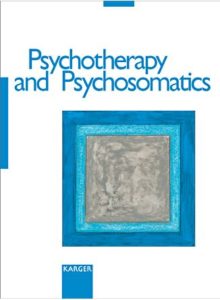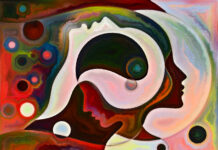While an estimated 74-percent of patients diagnosed with major depression receive a prescription for an antidepressant, new research reveals that mindfulness-based cognitive therapy (MBCT) may be most helpful when drugs are not used. The study, published in the current issue of Psychotherapy and Psychosomatics, found that the participants in a randomized control trial for MBCT who showed the greatest improvement were those who had not taken antidepressants.
 The researchers explain that antidepressants are known to reduce the neural processing of both rewarding and aversive stimuli, causing “emotional blunting,” and that this may prevent the generation of positive emotions that are essential for therapy.
The researchers explain that antidepressants are known to reduce the neural processing of both rewarding and aversive stimuli, causing “emotional blunting,” and that this may prevent the generation of positive emotions that are essential for therapy.
“Since the generation of positive emotions is crucial in the initiation of a positive spiral towards recovery, long-term outcomes of this contingent inhibiting effect of antidepressants on psychotherapy outcome in terms of positive affect will have to be investigated in more detail in experimental set-ups,” the researchers conclude.
“If our findings are replicated it would implicate that the sequential addition of psychotherapy to antidepressants could be less efficient than discontinuing antidepressants before/during receiving psychotherapy especially for improving long-term outcomes.”
****
Bakker, J.M., Lieverse, R., Geschwind, N., Peeters, F., Myin-Germeys, I. and Wichers, M., 2016. The Two-Sided Face of Antidepressants: The Impact of Their Use on Real-Life Affective Change during Mindfulness-Based Cognitive Therapy. Psychotherapy and Psychosomatics, 85(3), pp.180-182. (Full Text)















I’m supposed to be surprised after reading this- that your ability to respond to psychotherapy is diminished when you’re buzzed? Am I now supposed to wonder why that is?
Report comment
Anything would be more effective without “antidepressants”!!!!!!!! These damned things are nothing but zombifying devil’s tic tacs!!!
Report comment
I think this also occurs in recovery from psychosis. Unless you’re really in confusion about your emotions and in need of a crutch, it’s optimal to handle emotions when they’re fresh. How else can we relate to them (emotions) if we forget the thoughts that we’ve had that stay mostly private and actions that we’ve made as a result? If we avoid the challenges of real expression, in whatever form, be it therapy, art, or just self-discipline and allowing ourselves to heal naturally, we may lose the opportunity to heal altogether.
When dealing with severe emotions especially, I’ve found that riding to the very bottom now that negativity, within reason, is crucial to being able to continue to respect yourself and understand the crazy things that have happened. Putting it off for a few years will distance you from the pain and the mindset, making it hard to remember the bulk of the thoughts you’ve had.
Report comment
There’s a lot to be said for mindlessness therapy as well.
Report comment
Frank: What do you mean by “There’s a lot to be said for mindlessness”?
Report comment
Mindfulness is a catch phrase and a trendy form of treatment. Mindlessness, on the other hand, is complete fun. I see a lot of good coming out of just having fun.
Report comment
Thanks. I think mindfulness is more than just fun – mindfulness can bring about significant reductions in both physical and emotional pain. See:
http://time.com/4108442/mindfulness-meditation-pain-management/
Report comment